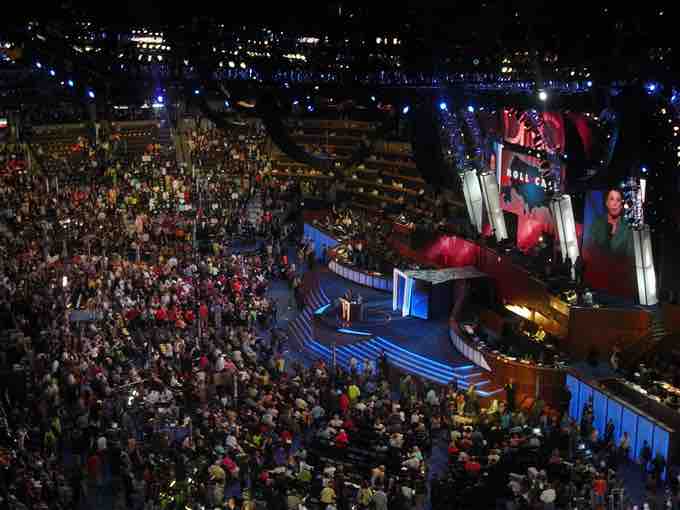Nomination is part of the process of selecting a candidate for election to office. In a representative democracy, such as the United States, citizens vote to elect individuals to public offices. Examples of elected officials include at the federal level, the president; at the state level, a state representative; and at the local level, a city council member. In order to have their names listed on election ballots, individuals seeking these offices must first be nominated.
In the United States, nominees are often chosen by political parties. Political parties are organizations that subscribe to a certain ideology, articulated in the party's platform, and that seek to attain political power through representation in government. The two largest political parties in the United States are the Democratic Party and the Republican Party, but there also are smaller parties, such as the Libertarian Party and the Green Party. To nominate candidates, political parties hold primary elections. Primary elections are used to narrow the field of candidates for the general election. In a primary, several members of the same political party campaign to become their party's nominee in the general election. In the general election, nominees from each party compete against each other to be elected to office.
In order to formally select candidates for a presidential election, American political parties hold nominating conventions . The official purpose of these conventions is to select the party's nominee for president, as well as to adopt a statement of party principles and goals, known as the platform. In modern presidential campaigns, however, nominating conventions are largely ceremonial. Due to changes in election laws, the primary and caucus calendar, and the manner in which political campaigns are run, parties enter their conventions with presumptive nominees. During primary campaigns, state delegates are assigned to a primary candidate based on the outcome of a statewide vote. Whichever primary candidate emerges from the primary election with the most delegates becomes the party's presumptive nominee. The presumptive nominee is not formally nominated until the national convention, but he or she is all but assured of a place on the ballot in the general election by the conclusion of the primary season.

2008 Democratic National Convention
Modern nominating conventions are largely ceremonial affairs, intended to strengthen party support of its presumptive nominee.
When candidates for national, state, or local office are not affiliated with a political party, they may be nominated as candidates if they receive a sufficient number of signatures from eligible voters (though the specific requirements vary by voting jurisdiction). In a case where an independent, or unaffiliated, candidate receives sufficient signatures, his or her name will appear on the ballot in the general election. These candidates do not need to participate in primary elections, since they are not seeking the nomination of a political party.